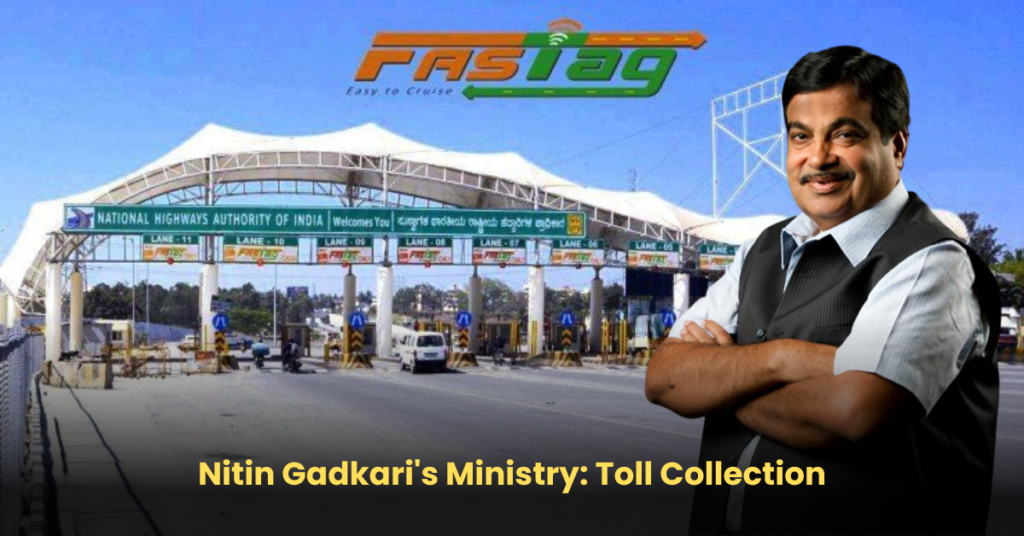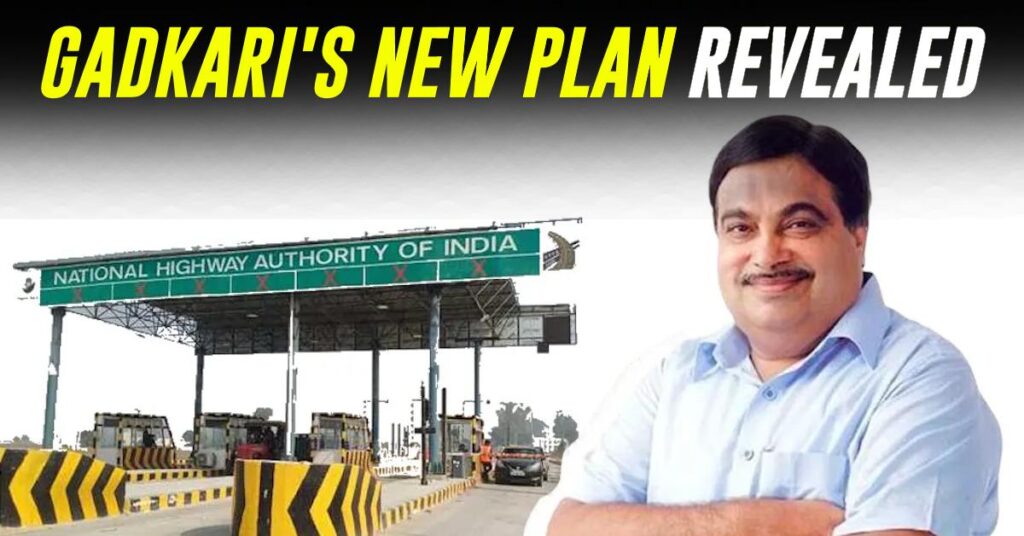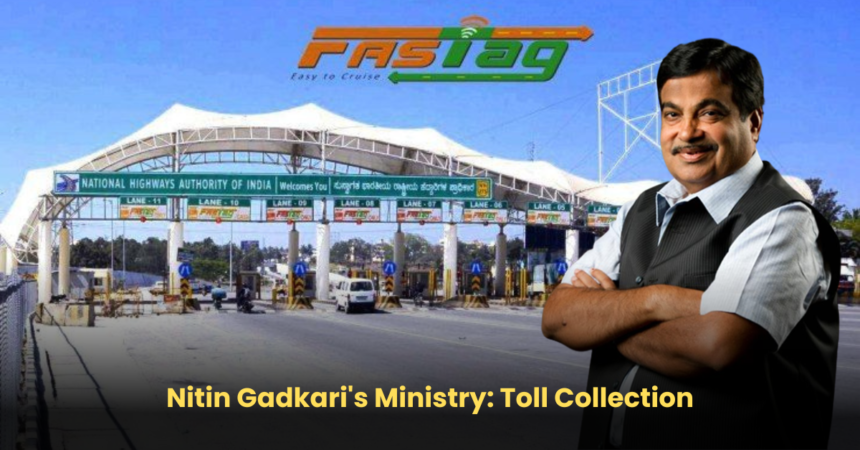Discover why Nitin Gadkari’s ministry supports permanent toll collection in India. Learn about its impact on infrastructure, commuters, and future development.

India’s road infrastructure has undergone significant transformation over the years, driven by substantial investments in construction and modernization. However, recent statements by Nitin Gadkari, Union Minister for Road Transport and Highways, have sparked discussions regarding toll collection policies. Gadkari confirmed that toll collection will continue permanently, even after the recovery of road construction costs. This article delves into the reasons behind this policy, its implications for commuters, and its potential impact on India’s road infrastructure.
Understanding Toll Collection in India
Toll collection is a critical mechanism for funding road construction and maintenance. The fees collected from road users are utilized to recover the initial construction costs and ensure regular upkeep. However, the decision to continue toll collection indefinitely has raised questions about its fairness and long-term objectives.
Why Will Toll Collection Continue Permanently?
According to Gadkari, the continued toll collection policy is aimed at achieving several objectives:
- Maintenance and Upgradation:
- Roads require ongoing maintenance to ensure safety and efficiency.
- Toll revenues are essential for upgrading infrastructure, including widening roads, enhancing safety features, and improving technology.
- Future Infrastructure Development:
- Funds generated from tolls contribute to the development of new highways and expressways.
- Sustained revenue ensures the availability of funds for future projects without solely relying on government allocations.
- Reducing Financial Burden on Government:
- Permanent toll collection reduces the dependence on government funds, which can be allocated to other critical sectors like healthcare and education.
- Private Sector Involvement:
- Many roads are developed under the Public-Private Partnership (PPP) model. Private investors expect consistent returns, and toll revenue guarantees their involvement and interest.
Implications for Commuters
While toll roads offer better connectivity and faster commutes, the continuation of toll collection can have several implications:
- Financial Impact: Commuters will continue to pay tolls indefinitely, affecting long-term travel budgets.
- Equity Concerns: There is a growing debate about whether it is fair to continue charging tolls after construction costs are recovered.
- Quality Expectations: Regular toll payments lead to higher expectations for road quality, maintenance, and service facilities.
Government’s Justification for Permanent Toll Collection
The government argues that stopping toll collection after cost recovery would lead to insufficient funds for maintenance and upgrades, resulting in deteriorating road conditions. Gadkari emphasized that consistent toll revenue ensures:
- Timely maintenance and repairs.
- Upgrading infrastructure to meet evolving demands.
- Ensuring long-term sustainability of India’s highway infrastructure.
Addressing Public Concerns
To address public concerns, the government has proposed certain strategies:
- Transparent Toll Policies:
- Clear communication about how toll revenues are utilized.
- Periodic reviews to assess the necessity and fairness of toll rates.
- Enhanced Facilities for Toll-Payers:
- Improved amenities at toll plazas, such as rest areas, sanitation, and emergency services.
- Fast-tracking toll collection through electronic methods like FASTag to reduce wait times.
- Considering Alternatives:
- Exploring the possibility of reduced toll rates for local commuters or frequent travelers.
- Implementing distance-based toll systems to ensure fairness.

Economic Perspective: How Permanent Toll Collection Benefits India
- Boosts Infrastructure Development:
- Consistent toll revenue supports continuous development of roads and highways.
- Encourages investment from private players, leading to faster project completion.
- Promotes Economic Growth:
- Efficient road networks enhance trade and connectivity, supporting local economies.
- Reduces transportation costs over the long term, benefiting industries and businesses.
- Reduces Government Debt:
- Less reliance on government funding helps in reducing fiscal pressure and redirecting resources to other essential sectors.
Global Practices in Toll Collection
Permanent toll collection is not unique to India. Several developed countries, including the United States and European nations, follow similar practices. The primary reasons include:
- Continuous maintenance and upgradation.
- Managing traffic through dynamic toll pricing.
- Ensuring financial sustainability of road infrastructure.
Challenges and Criticisms
Despite its benefits, permanent toll collection faces criticisms, such as:
- Lack of Transparency: Concerns about how toll revenues are utilized.
- High Toll Rates: Questions about the affordability and fairness of toll charges.
- Inequity for Regular Commuters: Daily commuters feel an added financial burden due to constant toll charges.
Future of Toll Policies in India
The government is exploring technological advancements to make toll collection more efficient and less burdensome:
- Implementation of GPS-Based Toll Systems: Aimed at reducing manual toll collection and ensuring fairness by charging based on distance traveled.
- Dynamic Pricing Models: Adjusting toll rates based on traffic conditions and peak hours.
- Public Feedback Mechanisms: Encouraging feedback from commuters to improve toll facilities and policies.
The policy of permanent toll collection, as stated by Nitin Gadkari’s ministry, is designed to ensure sustainable and high-quality road infrastructure in India. While this approach promises long-term benefits, it also necessitates transparency, fairness, and consistent improvement in road quality and facilities. Public cooperation and understanding will be crucial to making this policy successful and ensuring that India’s roadways remain efficient, safe, and world-class.
Why is toll collection continuing after road costs are recovered?
Toll collection continues to fund maintenance, upgrades, and future infrastructure projects, ensuring long-term road quality and safety.
How does permanent toll collection benefit India’s economy?
It supports continuous infrastructure development, attracts private investment, and reduces government fiscal burden.
Will toll rates be reduced in the future?
The government is considering dynamic pricing and distance-based toll systems to ensure fairness.
How can commuters provide feedback on toll facilities?
Commuters can use official government portals or toll plaza feedback mechanisms to share their experiences and suggestions.










